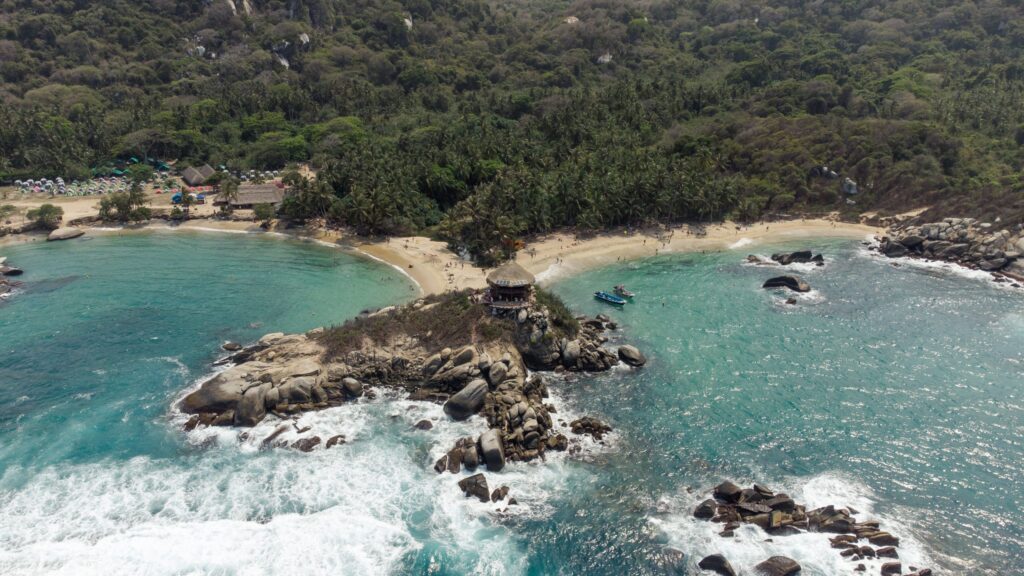A trade union and several rights groups have claimed that Ecuadorian banana trade workers’ rights are being violated despite a trade agreement with the European Union (EU).
Ecuador’s Agricultural Workers and Farmers Trade Union Association (ASTAC), ActionAid France, the International Federation for Human Rights (FIDH), ASTM-Luxembourg, and Baldon Avocats have submitted a complaint to the European Commission (EC), claiming that the Ecuadorian banana industry is failing to protect human rights and the environment.
The complaint, which was made on September 1 and announced on September 24, denounces a lack of freedom of association for Ecuadorian banana trade workers, infringements on the right to collective bargaining, the criminalization of union members, failures to respect labor and environmental law, and state inaction to pesticide poisoning of workers.
ASTAC lawyer, José Barahona, told Latin America Reports: “There are workers who start at six in the morning, leave at eight at night, and leave at nine at night, in many cases. And we have also seen significant problems with freedom of association.
“There is repression, both on the part of companies and also complicity on the part of state institutions. Unfortunately, the institutions that should protect workers don’t do so; they don’t fulfill their functions. They seem more interested in protecting and safeguarding the interests of corporations.”
The trade union is also concerned by the exposure of workers to pesticides.
Barahona explained: “There are also serious cases of workers exposed to pesticides without any protective equipment. Many companies don’t provide them with gloves, aprons, boots, masks, or anything like that.”
One of the most common chemicals used on the banana plantations is a fungicide called Mancozeb, which is banned in the EU after it was found to be toxic to reproduction.
With the assistance of the Simón Bolívar Andean University, ASTAC recently collected 103 urine samples from banana plantation workers.
Of the samples, 11% tested positive for Mancozeb residue.
Barahona stated: “The experts told us that just because 11% tested positive, this doesn’t mean that the rest weren’t exposed to the chemical itself. Because some organisms can eliminate the residue more quickly than others.
“Likewise, many of the workers who tested positive stated that they didn’t even have direct contact with pesticides.”
ASTAC coordinator, Diana Montoya, highlighted the plight of Ecuadorian women in the industry.
She said: “When it comes to women, there is a lot of discrimination. They work the same hours as men, but receive much less pay than men.”
Montoya continued: “In addition to that, there are also cases where women are sexually harassed. These types of cases are reported, but they usually end up firing the woman and not the person actually committing the crime, which in this case is often their immediate superiors.”
The coordinator also emphasized that complaining to the EC was a last resort.
She said: “Let it be clear that we take these types of measures, such as filing a complaint, because we have exhausted all national avenues. In fact, in 2019, we filed a complaint with the Ministry of Foreign Affairs, specifically outlining all the situations that were occurring within the plantations, and absolutely nothing was done.”
The EU-Colombia-Peru-Ecuador Trade Agreement entered into force on November 1, 2024, though had provisionally applied to Ecuador since January 1, 2017.
Seeking to open up the markets in both the Latin American and European region, the agreement aims to provide a more stable business environment, better conditions for trade, and reduced custom duties for most goods.
It also commits all parties to respecting human rights, guaranteeing employment rights, and ensuring an adequate level of environmental protection.
Parties involved in such a trade agreement can approach the EC to complain if they believe it is being violated.
ASTAC is clear that, by filing a complaint with the EC, it does not seek to cease banana production, purchases, sales, or exports.
“That would affect millions of people in Ecuador,” Barahona noted.
He said: “All we ask is that the process be carried out ethically, without neglecting workers’ rights.”
Olof Gill, the EC spokesperson for trade, told Latin America Reports: “The Free Trade Agreement between the EU, Ecuador, Colombia, and Peru includes a comprehensive Trade and Sustainable Development chapter with commitments aimed to ensure high levels of labor and environmental protection, which includes a transparent arbitration system and procedures to engage with civil society.”
Gill confirmed that a complaint was submitted to the EC on September 1, 2025.
He said: “We are now in the process of conducting the preliminary assessment of the complaint and can’t comment on on-going investigations.”
The Ecuadorian authorities were contacted for comment, but had not responded by the time of publishing.










